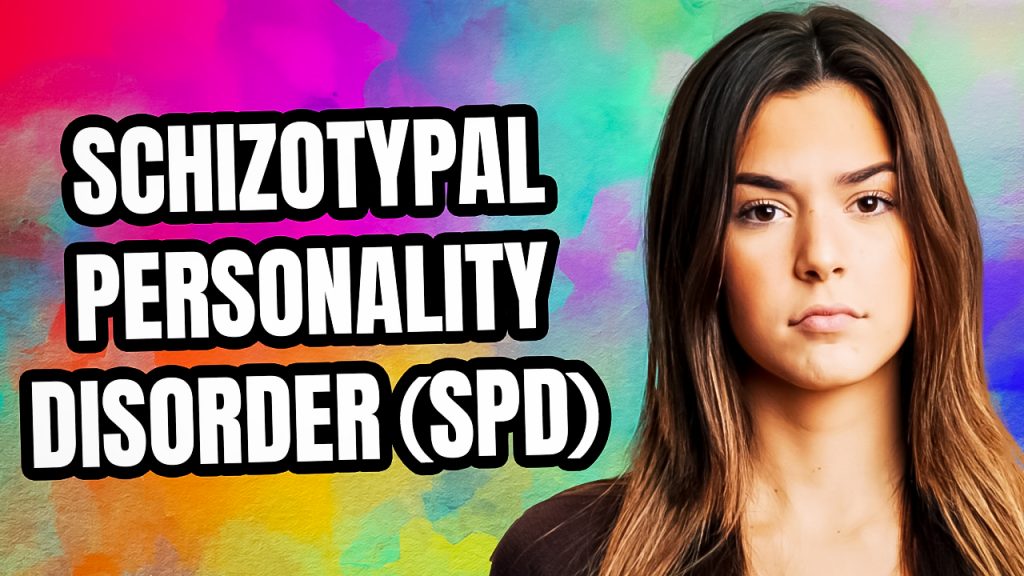What is Schizotypal Personality Disorder (SPD)?

Schizotypal Personality Disorder (SPD) is a personality disorder characterized by a range of
cognitive and behavioral features that create significant social and occupational impairments.
Individuals with SPD often experience odd or eccentric behavior, as well as delusions, beliefs,
and perceptual experiences that do not conform to reality. These experiences can interfere with
an individual’s ability to form and maintain relationships, as well as their capacity to function
effectively in society.
SPD is part of the cluster A personality disorders, which are characterized by odd or eccentric
behavior. Other cluster A disorders include paranoid personality disorder and schizoid
personality disorder. However, while individuals with paranoid personality disorder often have a
persistent distrust and suspicion of others, and those with schizoid personality disorder tend to
avoid social interactions, individuals with SPD may have unusual beliefs, behaviors, or
perceptual experiences that distinguish them from those with other cluster A disorders.
The Diagnostic and Statistical Manual of Mental Disorders, 5th Edition (DSM-5) describes SPD
as a pervasive pattern of social and interpersonal deficits, as well as eccentricities in behavior,
thought, and appearance. These deficits and eccentricities often manifest in early adulthood,
and are present across a variety of social and occupational contexts. The DSM-5 specifies that
in order for a diagnosis of SPD to be made, an individual must have at least five of the following
symptoms:
Ideas of reference (believing that everyday events or situations have a special meaning,
specifically related to oneself)
Odd beliefs or magical thinking (believing in superstitions, paranormal phenomena, or having
unusual or idiosyncratic beliefs)
Unusual perceptual experiences, including bodily illusions or other illusions of external stimuli
Odd thinking or speech (vague, metaphorical, or stereotyped speech; odd or unusual use of
language)
Suspiciousness or paranoid ideation
Inappropriate or constricted affect (emotional expression that is flat or inappropriate)
Behavior or appearance that is odd, eccentric, or peculiar
Lack of close friends or confidants other than first-degree relatives
Social anxiety that does not diminish with familiarity and tends to be associated with paranoid
fears
Individuals with SPD may also experience other symptoms that are not listed in the DSM-5
criteria, such as anxiety, depression, and a heightened risk for developing other psychiatric
disorders such as major depressive disorder or substance use disorder. Additionally, individuals
with SPD may struggle with difficulties in self-care, including maintaining personal hygiene or
nutrition, and may have difficulty functioning in daily life due to their odd or eccentric behaviors.
The causes of SPD are not entirely understood, but researchers suggest that both genetic and
environmental factors may contribute to its development. There is evidence to suggest that
individuals with SPD may have structural and functional abnormalities in the brain, particularly in
regions associated with social cognition and emotion regulation. Additionally, individuals who
have experienced childhood trauma or who have a family history of schizophrenia or other
psychotic disorders may be at an increased risk for developing SPD.
There is no cure for SPD, but treatment can help individuals manage their symptoms and
improve their quality of life. Treatment typically involves a combination of medication and
psychotherapy. Antipsychotic medications may be used to reduce the severity of delusions or
hallucinations, while mood stabilizers or antidepressants may be used to address co-occurring
mood or anxiety disorders. Psychotherapy, particularly cognitive-behavioral therapy (CBT), can
help individuals with SPD to identify and challenge their maladaptive thoughts and behaviors,
and to develop more adaptive coping skills.
It is important to note that individuals with SPD may not always seek treatment, as they may not
recognize that their behaviors or beliefs are unusual or problematic. Additionally, stigma
surrounding mental illness may prevent individuals with SPD from seeking help or disclosing
their symptoms to others. Therefore, early identification and intervention are critical for
individuals with SPD to receive the appropriate treatment and support.
It is also important for individuals with SPD to receive support from their families, friends, and
communities. Social support can help to reduce feelings of isolation and stigma, and can
provide individuals with the resources and encouragement they need to manage their symptoms
effectively. Community support groups, such as those offered by the National Alliance on Mental
Illness (NAMI), can provide individuals with SPD and their loved ones with education, advocacy,
and peer support.
Living with SPD can be challenging, but with appropriate treatment and support, individuals with
this disorder can learn to manage their symptoms and improve their quality of life. It is important
to recognize that individuals with SPD are not dangerous or violent, and that they deserve
compassion, respect, and understanding. By increasing awareness and understanding of SPD,
we can help to reduce the stigma and discrimination that individuals with this disorder often
face, and promote a more inclusive and accepting society.
This Post is Brought To You By BetterHelp